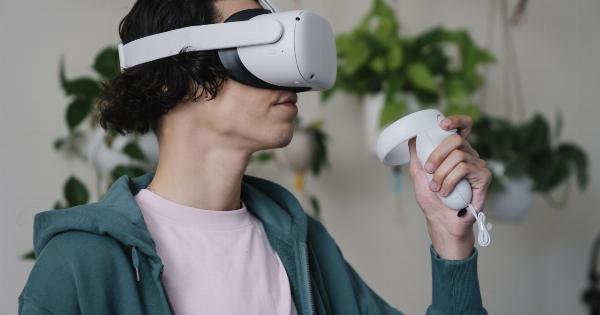Video games have long been associated with leisure and entertainment. However, recent studies have shown that playing video games can also have cognitive benefits, including improving memory.
While excessive gaming can have negative effects, moderate and strategic gaming can actually enhance memory and cognitive abilities. In this article, we delve into the world of video games and explore how they can be used as an effective tool to boost your memory.
The Link Between Video Games and Memory Enhancement
Researchers have found a strong correlation between video games and improvements in memory function.
Studies have shown that certain types of video games, particularly those that involve strategy, problem-solving, and memory challenges, can improve various aspects of memory, including working memory, long-term memory, and spatial memory.
Working Memory and Video Games
Working memory refers to the ability to hold and manipulate information in the mind over short periods of time.
This is a crucial cognitive function that is used in various daily activities, such as following instructions, problem-solving, and decision-making. Video games that require players to remember and process information quickly, such as puzzle games or action-adventure games, can enhance working memory.
These games often involve remembering and executing complex sequences of actions or solving puzzles within a limited timeframe.
Long-Term Memory and Video Games
Long-term memory is responsible for storing and retrieving information over an extended period of time.
Research suggests that certain video games can improve long-term memory by engaging players in the process of recalling information from their memory banks. Games that involve storytelling, exploration, and character development provide players with a rich narrative that they need to remember and recall throughout the game.
This constant engagement with the game’s storyline and characters can help enhance long-term memory.
Spatial Memory and Video Games
Spatial memory is the ability to remember and navigate through physical environments or mental maps. Video games that involve exploration, open worlds, and puzzle-solving often require players to navigate through complex virtual spaces.
By doing so, players exercise their spatial memory, as they have to remember the layout of the game world, locate important landmarks, and navigate efficiently. This constant engagement with spatial memory can have a positive impact on real-world spatial awareness and memory.
Strategic and Problem-Solving Games
Strategic and problem-solving games, such as chess, strategy games, and puzzle games, are particularly effective at boosting memory. These games often involve planning, decision-making, and anticipating future moves or consequences.
By engaging in strategic thinking, players exercise their memory to remember previous moves, develop effective strategies, and adapt their gameplay accordingly. As a result, these games can significantly enhance memory function.
Role-Playing Games and Memory
Role-playing games (RPGs) are another genre of games that can enhance memory function. RPGs often have intricate storylines, complex character interactions, and a wide range of quests and objectives.
Players have to remember the details of the game’s narrative, character backgrounds, and dialogue choices. This constant engagement with the storyline and characters can improve both working memory and long-term memory.
Video Games as Educational Tools
Given the positive impact of video games on memory enhancement, educators and researchers have started exploring the use of video games as educational tools.
Various educational games and applications have been developed to help students improve their memory, cognitive abilities, and overall learning outcomes. These games combine fun and engaging gameplay with educational content, making learning a more enjoyable and effective experience.
Benefits Beyond Memory
While memory enhancement is a significant benefit, video games can also have other positive effects on cognitive function. Studies have shown that video games can improve attention span, concentration, problem-solving skills, and hand-eye coordination.
These benefits can further complement the memory-enhancing effects of video games, resulting in overall cognitive improvement.
Moderation and Balance
While video games can be a powerful tool for memory enhancement, it is important to approach gaming with moderation and balance. Excessive gaming can have negative effects, such as addiction, decreased productivity, and impaired social skills.
It is crucial to allocate time for other activities, such as physical exercise, reading, socializing, and pursuing other hobbies.
Conclusion
Video games have come a long way from being pure entertainment to valuable tools for cognitive enhancement.
When played strategically and in moderation, certain types of video games can significantly improve memory function, including working memory, long-term memory, and spatial memory. Engaging in games that require strategic thinking, problem-solving, and memory challenges can have a positive impact not only on memory but also on other cognitive functions.
It is important to strike a balance and ensure that gaming is part of a healthy and well-rounded lifestyle.





























